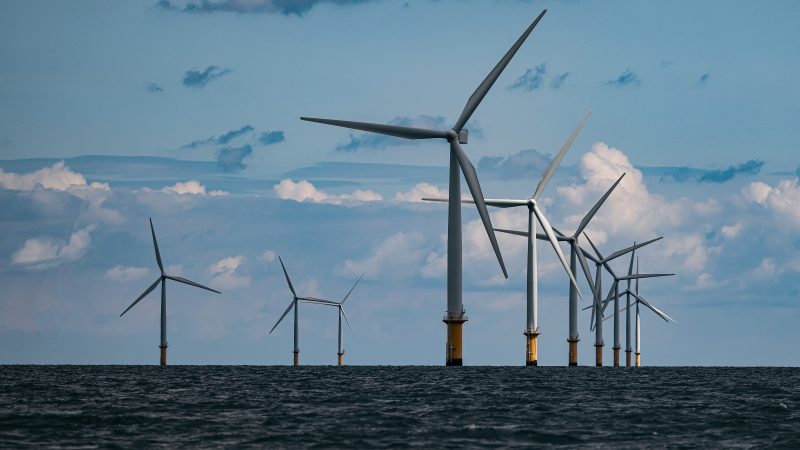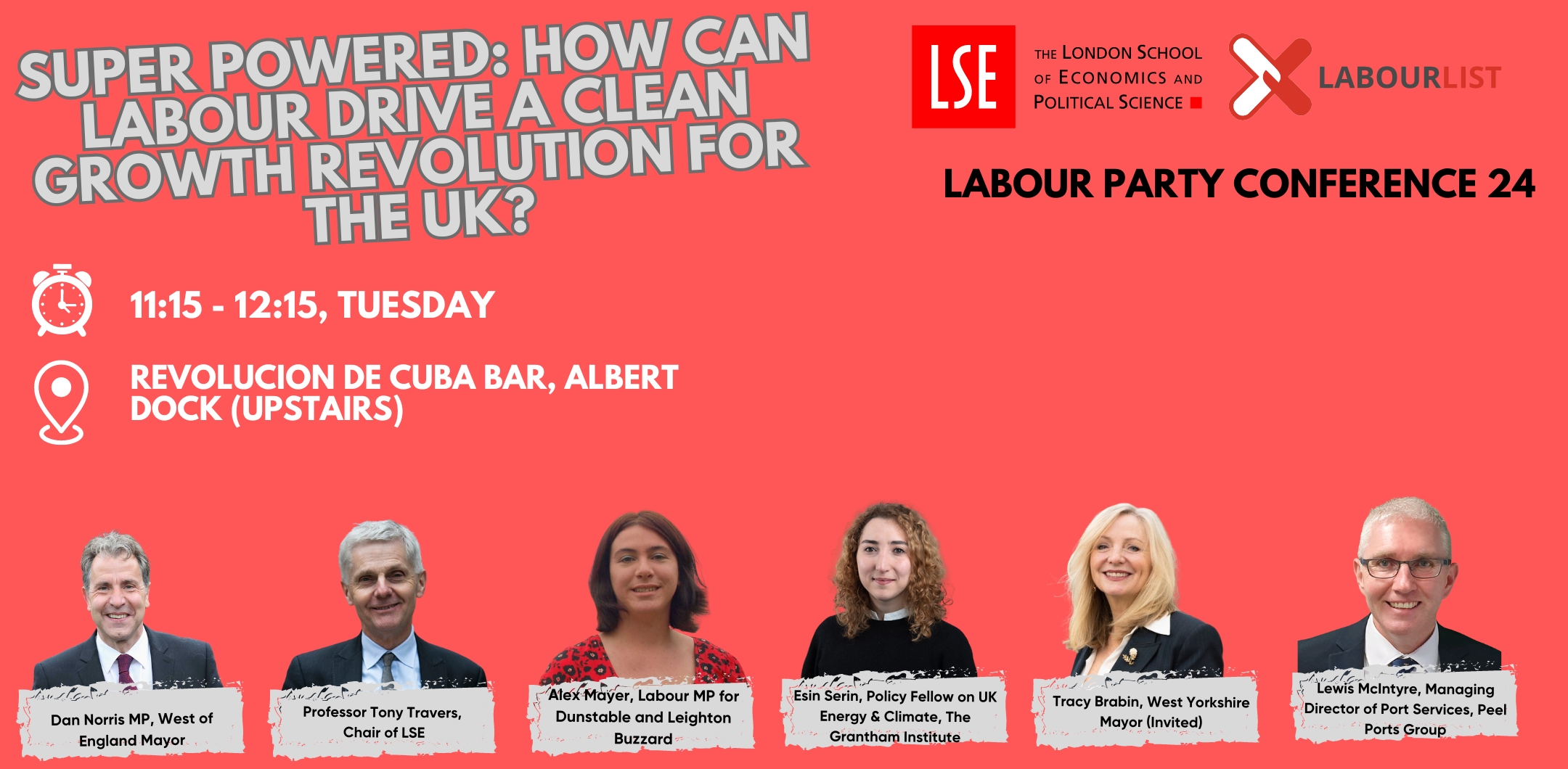
Rachel Reeves will deliver the new Government’s first Budget on 30 October, constrained by a challenging environment for the public finances.
Even though we’ve been warned the Budget will be “painful”, given that growth is the Government’s highest priority what clear steps can we reasonably expect to see – and what do we need to see – to grow the UK economy while working to make it a clean energy superpower?
It has been well established that there is no path to sustained growth for an economy that does not incorporate efforts to limit global warming to 1.5 degrees. To fulfil the Government’s growth agenda and seize the great opportunities from the transition to a clean economy, the UK must invest early in developing the capabilities to competitively serve growing domestic and global demand for relevant technologies and services.
Delaying this investment will risk the loss of UK jobs and access to new, rapidly growing markets. This is why action to unlock investment in the transition is so urgent, and why the upcoming Budget sits at a critical juncture for the future of the UK economy.
Putting announced commitments on the books
Labour has long linked its approach to growth with the clean transition, explicitly stating the direct relationship between its primary mission to ‘kickstart economic growth’ and its commitment to ‘make Britain a clean energy superpower’ in its election manifesto.
Since coming to power, the Government has already operationalised some institutional reforms designed to support these missions. Great British Energy and the National Wealth Fund could be crucial enablers of investment in domestic capabilities for the UK to capture growth opportunities from the clean economy. The government plans to fund these institutions through an increase and extension of windfall taxes on oil and gas companies combined with responsible borrowing within its fiscal rules.
The Budget is unlikely to contain any surprises or changes relating to these long-standing commitments. Any chopping and changing now would run fundamentally against Rachel Reeves’s ‘securonomics’ agenda, which has stability at its core.
Laying the foundations for the forthcoming industrial strategy
The Government has promised the country a new industrial strategy to support its mission to kickstart economic growth. Developing this strategy – and crucially, doing so in a way that maximises clean growth opportunities – requires the Government to analyse comprehensive evidence about the capabilities of the economy, identify the areas the UK excels in or where it can do so in the future, and decide how best to use policy to support these areas in the face of various market failures and uncertainties.
Developing a well-targeted industrial strategy will inevitably take time given the required scope and depth of the exercise. Action from the Chancellor in the immediate term that reflects the work in progress on this forthcoming strategy can help businesses get on with developing foundational capabilities to grow.
‘Horizontal’ policies that enhance the business environment across the economy – such as improvements to public infrastructure, skills and the innovation landscape – could be operationalised ahead of choosing which specific parts of the economy to prioritise and support.
When it comes to such choices, policymakers could find particular value in the kind of evidence we produce at LSE, which has shown significant UK strengths over other countries in areas like carbon capture and storage, floating offshore wind and tidal stream energy. These could be priority sectors in a new industrial strategy for the UK with the Government’s clean energy mission at its core.
READ MORE: ‘We’re behind on our climate targets for 2030. So make action a council duty’
Moreover, at a time where significant spending is not possible, the signalling value of Government targets should not be underestimated. These can be especially effective in nascent technology markets, which will appear riskier for private investors.
Tidal stream energy is one such technology in which the UK can create important opportunities by capitalising on its global leadership position. It was no coincidence that Keir Starmer launched Labour’s clean energy mission at the site of Nova Innovation – a Scottish developer of tidal stream turbines.
The government can now make much more of its signalling impact by setting out a domestic deployment target for the technology (as it already does for other technologies like floating offshore wind). This would indicate its intention to work with the private sector to drive the necessary investment towards that target, while giving the Chancellor flexibility on the precise amount and shape of support to come from the public purse.
Creating the fiscal space for greater investment
With the stage set for a “painful” Budget – its primary objective being to plug holes – a major investment programme to super-power clean growth is unlikely to be on the table next month. But the reality is, the UK will be able to access the growth benefits of the clean transition only if it invests early to deliver it, along with nurturing domestic supply chains in the necessary technologies in which it can compete well globally.
The Budget is an opportunity for the Chancellor to set out more detail on how she will prepare the fiscal space to enable greater investment. Earlier this year we estimated that annual public investment in the UK needs to rise by at least 1 per cent of GDP (or £26 billion at current prices), which could crowd in at least twice as much in private investment, in order to secure a clean, resilient and productive future for the country.
Available options for increasing investment in productive assets with long-term returns include changing the fiscal rules to allow greater borrowing for such investments and excluding policy banks from fiscal rules.
The UK needs bold leadership now from the Government and its Chancellor, precisely because of the pressures on the public finances, as we have previously argued.
Investing today is the only path for the UK to a clean, resilient and competitive tomorrow.
READ MORE: Sign up to our must-read daily briefing email on all things Labour
Join the discussion on these issues and more at the panel ‘Super Powered: How can Labour drive a clean growth revolution for the UK?’ by LabourList and LSE at the Labour Party Conference in Liverpool on Tuesday 24 September.
SHARE: If you have anything to share that we should be looking into or publishing about this story – or any other topic involving Labour– contact us (strictly anonymously if you wish) at [email protected].
SUBSCRIBE: Sign up to LabourList’s morning email here for the best briefing on everything Labour, every weekday morning.
DONATE: If you value our work, please donate to become one of our supporters here and help sustain and expand our coverage.
PARTNER: If you or your organisation might be interested in partnering with us on sponsored events or content, email [email protected].





More from LabourList
‘Turning public services around: Haringey’s story of child protection’
‘Can Labour turn the green tide back to red?’
Tom Belger column: ‘Why is Labour making migrant exploitation easier?’